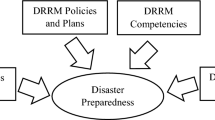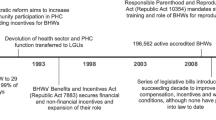Abstract
This paper presents a pen picture about the changes of livelihood patterns to the char people, mostly living under poverty in Bangladesh. The study was conducted on the three Northern Districts such as Nilphamari, Lalmonirhat and Pabna in Bangladesh, where the Char Resources Mobilization project was provided by an international non-government organization—Concern Worldwide Bangladesh. The study used mixed method approach where quantitative data were collected from 378 households (126 from each District) using structured interview schedule. A number of qualitative data collection methods such as focus group discussion, participant observation, community mapping, case study, and key informants interview guidelines were used to collect data about the conditions of the Char people in terms of understanding its connection with their livelihoods and socio-economic consequences. This study compares the changes with influential factors with a baseline survey conducted in 2007. Findings showed that there were a number of areas such as education, income, family assets and properties, annual household income, employment, savings, improving market chain, food intake and food security, presence of governmental and non-governmental organizations’ services and awareness about disaster and vulnerability and coping strategies were found positive. The study also observed some negative changes on assets base and livelihood options. The paper argues that the findings on these changes will help to formulate policy on poverty alleviation for the government and non-government authorities who implement the similar type of programmes.






Similar content being viewed by others
Notes
The Baseline Study for ICRM project, Concern Worldwide-Bangladesh and SDA-Dhaka, 21 March, 2007.
References
Ahluwalia, I. J., & Mahmud, W. (2004). Economic transformation and social development in Bangladesh. Economic and Political Week, 39(36), 4009–4011.
Carter, M. R., & Barrett, C. B. (2006). The economics of poverty traps and persistent poverty: An asset based approach. Journal of Development Studies, 42(2), 178–199.
Concern Worldwide Bangladesh. (2007). Baseline survey of the Island Char Resources Mobilization (ICRM) project. Dhaka: Concern Worldwide Bangladesh.
Concern Worldwide Bangladesh. (2011). Livelihood framework. Dhaka: Concern Worldwide Bangladesh.
Department of International Development (DFID). (2010). The neglected case crisis of under nutrition. DFID’s Strategy. Retrieved October 15, 2011 from www.dfid.gov.uk.
Environment and Geographic Information System (EGIS). (2000). Riverine chars in Bangladesh—Environmental dynamics and management issues. Dhaka: EGIS, Environment and GIS Support Project for Water Sector Planning.
Government of Bangladesh (GoB). (1998). The fourth five year plan 1997–2002. Dhaka: Planning Commission (GoB).
Human Development Report. (2009). Country fact sheet Bangladesh. Retrieved October 15, 2011 from http://hdr.undp.org/.
Chars and Livelihoods Programme (CLP). (2010). Impact of earlier recruitment into the CLP on mother and child nutritional status among chars dwellers. Retrieved October 16, 2011 from www.clp-bangladesh.org.
Islam, M. R., Mia, A., & Sorcar, N. R. (2005). Income generation perspective in non-formal education: NGO initiatives in Bangladesh. Asia Pacific Journal of Social Work and Development, 15(1), 17–29.
Islam, M. R., & Morgan, W. J. (2012). NGOs in Bangladesh: Their contribution to social capital development and community empowerment. Community Development Journal, 47(3), 369–385.
Khandker, S. R. (2009). Poverty & income seasonality. World Bank Policy Research Working Paper 4923. Washington, D. C.: World Bank.
Mahmud, W. (2008). Pathways of social development in Bangladesh: Surprises and challenges. Paper presented at the International Conference on Understanding of Social Protection in Asia, held in New Delhi on February 17–20, 2008, jointly organized by The Institute of Social Studies, The Hague, and the Institute of Human Development, New Delhi.
Mascie-Taylor, C. G. N., & Goto, R. (2008). Review of anthropometric monitoring and potential for nutrition-related interventions for possible inclusion in M&E of Shiree-funded Initiatives. Retrived June 1, 2010 from www.shiree.org.
Planning Commission. (2010). The perspective plan, Government of Bangladesh. Dhaka: Planning Commission.
Rangpur Dinajpur Rural Services (RDRS). (1999). Annual report 1999. Dhaka: RDRS.
Thompson, P. M. (2000). Bangladesh charlands a review of assets and change. Dhaka: DFID-B.
Thornton, P. (2000). Char livelihoods projects: Management and institutional assessment. Dhaka: Verulam Associates.
Thornton, P., Devine, J., Houtzager, P. P., Wright, D., & Rozario, S. (2000). Partners in development: A review of big NGOs in Bangladesh commissioned. Dhaka: DFID.
World Bank. (2006). Economic and governance of non-governmental organizations in Bangladesh. Dhaka: World Bank Office.
World Food Programme (WFP). (2002). The coping strategies index, a tool for rapidly measuring food security and the impact. Food Aid Programmes in Emergencies. Rome: WFP.
Acknowledgments
This research was organized by Maxiam Management System and funded by the Concern Worldwide Bangladesh.
Author information
Authors and Affiliations
Corresponding author
Rights and permissions
About this article
Cite this article
Islam, M.R., Hossain, D. Island Char Resources Mobilization (ICRM): Changes of Livelihoods of Vulnerable People in Bangladesh. Soc Indic Res 117, 1033–1054 (2014). https://doi.org/10.1007/s11205-013-0375-y
Accepted:
Published:
Issue Date:
DOI: https://doi.org/10.1007/s11205-013-0375-y




